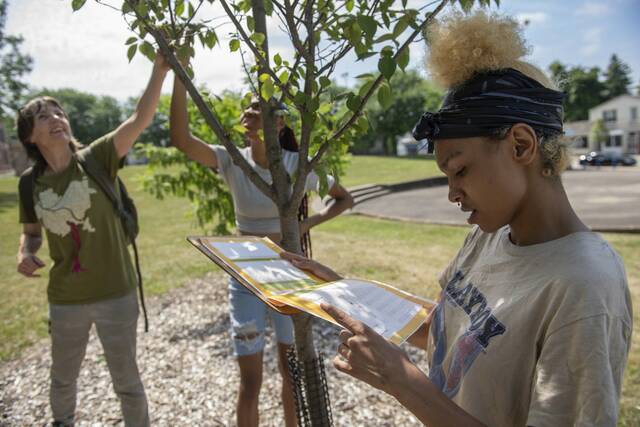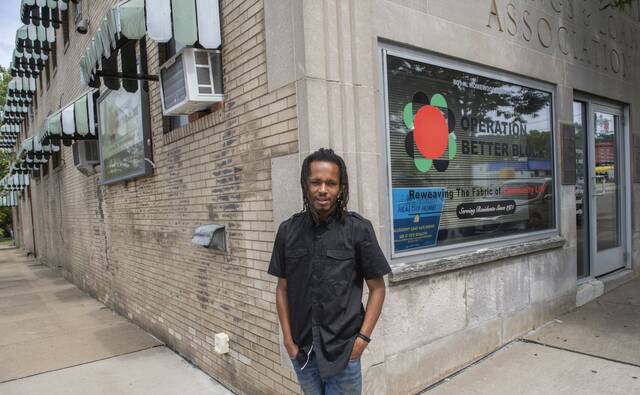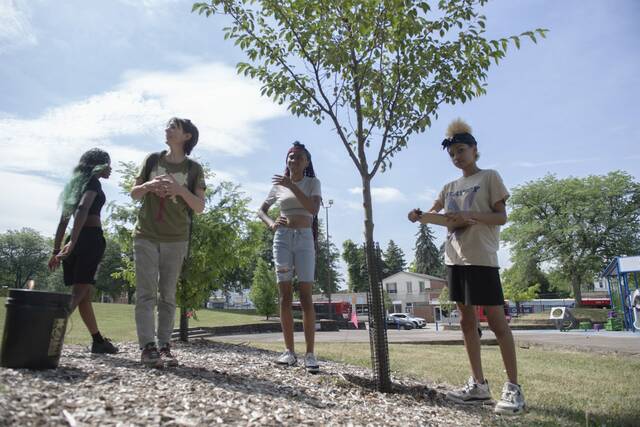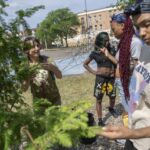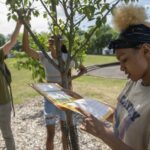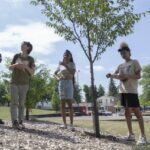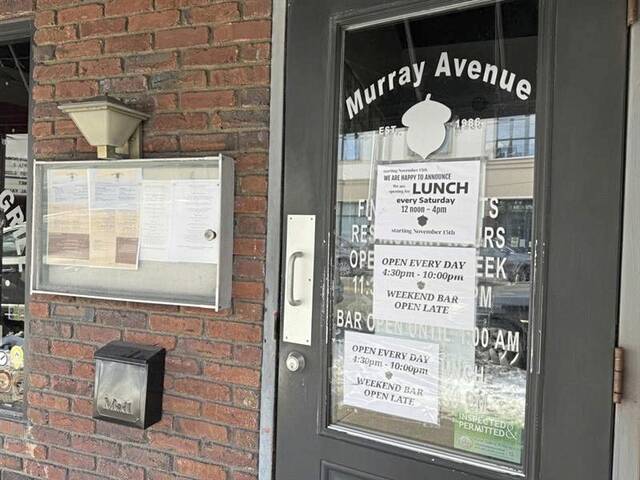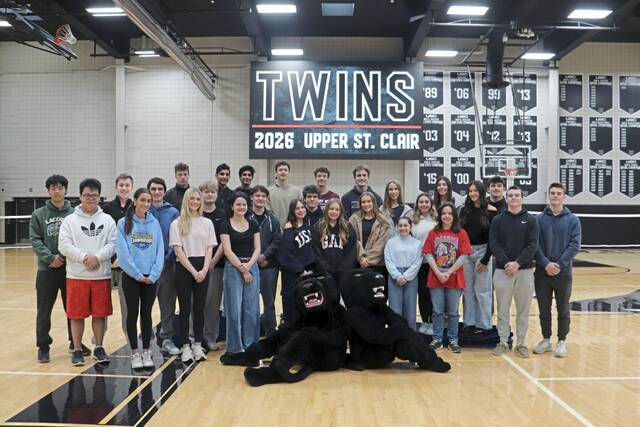Earlier this summer at Baxter Park in Homewood, students from the Junior Green Corps were busy caring for the local trees and plants, armed with fertilizer, water and mulch. They were also on the lookout for signs of distress, such as drooping leaves or changes in bark color, which could indicate that a tree needs extra support.
The hands-on work is part of a larger effort to rehabilitate the environment and instill a sense of pride in the community. Through their involvement, Junior Green Corps members are not only learning valuable environmental skills but are also building self-confidence and a sense of ownership over their neighborhood.
The Junior Green Corps, a workforce development program for youth ages 14 to 18, provides students with job experience that they can add to their resumes, preparing them for either the workforce or higher education. The program is run by Operation Better Block Inc., an organization founded in 1970 to revitalize Homewood.
“A part of the work stems from the amount of vacant lots that we have here in Homewood. What we have been able to do through the past decade is transform lots into green spaces that are beneficial to the community,” said Carlos Thomas, communications and community engagement specialist.
One of their most significant projects is the farm on Frankstown Avenue, which addresses the issue of food insecurity in the neighborhood. Over the past two years, the farm has produced more than 300 pounds of food, which is supplied to the Jamii Market, farmers market held weekly, weather permitting, at the James T. Givner building.
“A lot of it is developed around social justice and environmental justice, while also considering what the people of the community need most,” Thomas said.
Thomas emphasized that their work is about more than just physical improvements; it’s about transforming mindsets. He pointed out that poverty often brings challenges like disengagement from school, and the Junior Green Corps aims to help students overcome these barriers by challenging them to think differently.
Christina Thornhill, 17, shared how working with plants has helped her cope with anger and rethink her views on life and violence.
“There’s more out there than what we see in our visual and who we are around,” Thornhill said. “We can say something other than ‘Oh, my homie just died the other day’ to ‘Oh, my homie just helped me plant.’”
The Junior Green Corps has been maintaining the farm on Frankstown Avenue for decades, with different groups of students taking turns over the years. Thomas, the fifth person to hold his position, noted that many alumni have gone on to success, with one student joining the U.S. Air Force, others attending Indiana University of Pennsylvania and another aspiring to be a police officer.
“We are able to help lead people in the direction of professions that we also need more representation in,” Thomas said.
Although some of the progress is not immediately visible, the program has made significant physical impacts. The students have planted around 80 trees, which is crucial for Homewood, an area known for its lack of tree coverage and high temperatures. The trees have been planted at various locations including Faison School, the Junior Green Corps garden, Tioga play yard and Idlewild play yard.
“These are things that will have long-term effects,” Thomas said.
The program is structured like a job, and many students treat it as such. They actively recruit through local schools like Westinghouse and are always looking for more students to join. Participants earn $8 per hour, and for each year completed, they receive $500, up to $2,000 by the time they finish high school.
“Not a lot of 18-year-olds get to start with $2,000,” Thomas said. They have the capacity to serve 20 students in a cohort.
Still, the challenge is getting students to understand that benefit and retention, according to Thomas. They are giving students tools on financial education, discussing housing and equity and how to create generational wealth and life insurance.
“We can’t have students here making money and not have financial education conversations about taxes,” Thomas said. “It is hard in a transitional community, in a community that doesn’t have housing or a grocery store.”
Thomas is a lifelong Homewood resident and the director of Feed the Hood. As a chef, he seeks to build a system that produces food, he said. He’s been at OBB for a year and has been involved in many conversations about food insecurity and food apartheid within Black and brown urban communities.
“Food insecurity is not just the physical displacement of food, it is a detriment to public health,” he said.
Growing up in Homewood was not what people think because the community was always present, Thomas said.
“The reality that I was raised in, as much as I think now that I deserved more — it was the best life I could ever ask for. Now I get to fight for this community and work in this community. No one is going to come and save us,” he said.
Nazim Burton, a new staff member at Operation Better Block, connected with Thomas through Feed the Hood. Burton said Operation Better Block has taught him a lot, especially after a minor car accident last year.
“Working with the plants is very synonymous to what I had to go through. I had to retrain my body, go through physical therapy, pretty much water my own plants in a technical sense,” he said.
Roberto Cargile, 18, who was part of the summer cohort, said the program gave him and fellow students a new experience on how life, trees and the earth grow and function. For Dallas Chatman, 17, the most enjoyable part was cleaning up the community and bringing people together.
What has also been rewarding for the students is seeing the reactions to their work and how it has made people feel better seeing the greenery growing and flourishing.
“We are literally bettering the block,” Cargile said.



